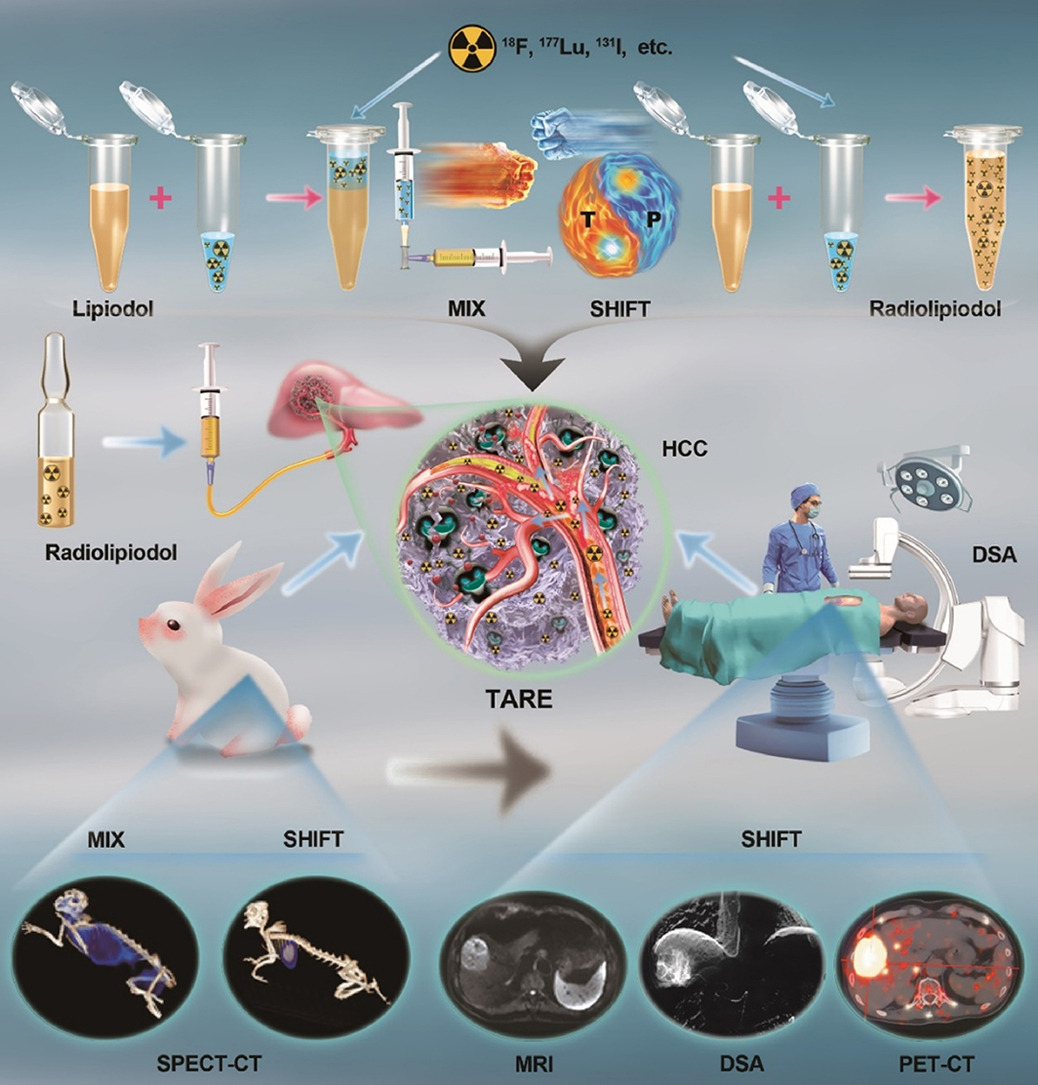Abstract
Transarterial radioembolization (TARE) is a widely utilized therapeutic approach for hepatocellular carcinoma (HCC), however, the clinical implementation is constrained by the stringent preparation conditions of radioembolization agents. Herein, we incorporated the superstable homogeneous iodinated formulation technology (SHIFT), simultaneously utilizing an enhanced solvent form in a carbon dioxide supercritical fluid environment, to encapsulate radionuclides (such as 131I,177Lu, or 18F) with lipiodol for the preparation of radiolipiodol. The resulting radiolipiodol exhibited exceptional stability and ultra-high labeling efficiency (≥ 99%) and displayed notable intratumoral radionuclide retention and in vivo stability more than 2 weeks following locoregional injection in subcutaneous tumors in mice and orthotopic liver tumors in rats and rabbits. Given these encouraging findings, 18F was authorized as a radiotracer in radiolipiodol for clinical trials in HCC patients, and showed a favorable tumor accumulation, with a tumor-to-liver uptake ratio of ≥50 and minimal radionuclide leakage, confirming the feasibility of SHIFT for TARE applications. In the context of transforming from preclinical to clinical screening, the preparation of radiolipiodol by SHIFT represents an innovative physical strategy for radionuclide encapsulation. Hence, this work offers a reliable and efficient approach for TARE in HCC, showing considerable promise for clinical application (ChiCTR2400087731).

文章链接:https://www.sciencedirect.com/science/article/pii/S2211383525000978#kwrds0010